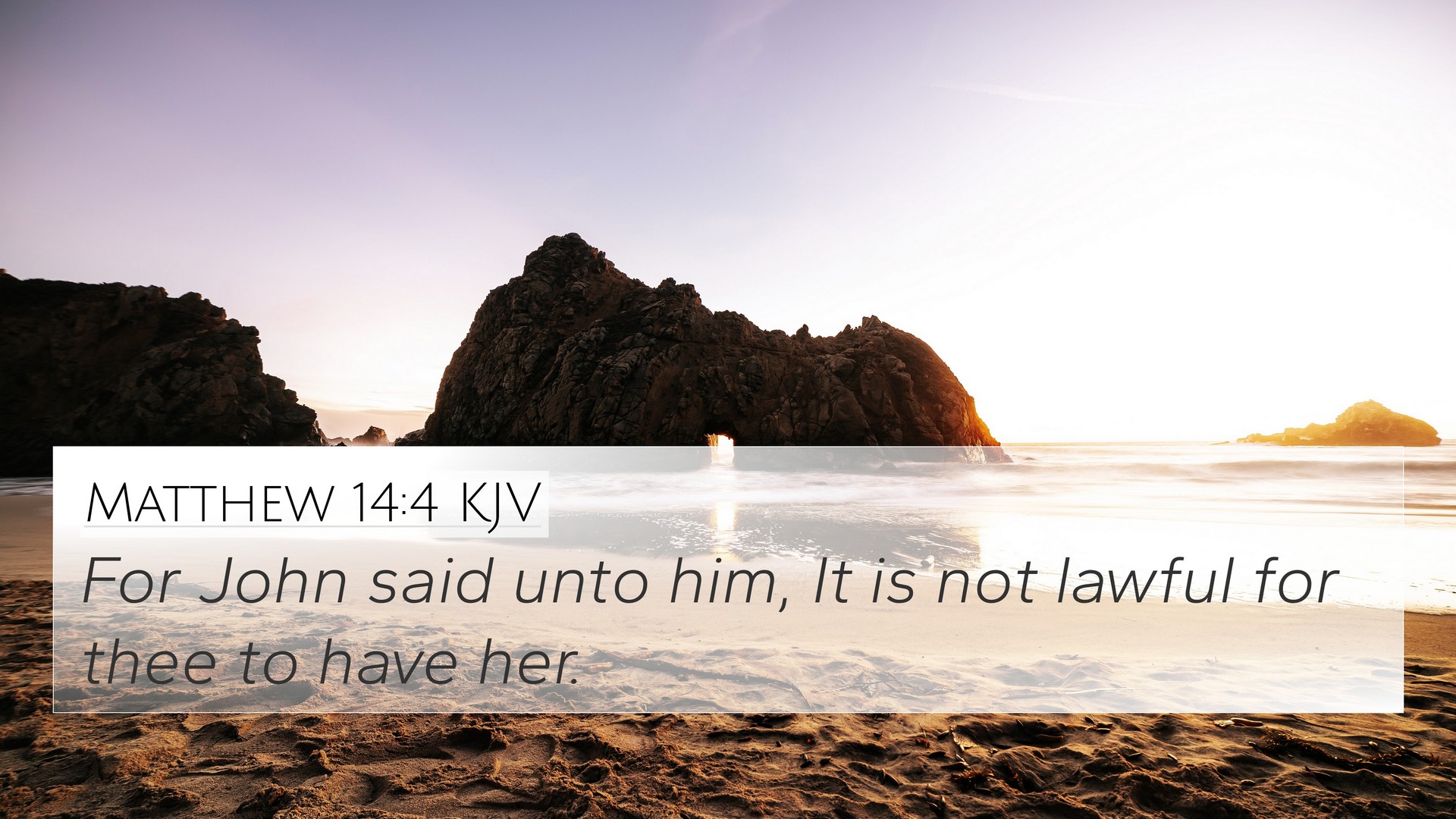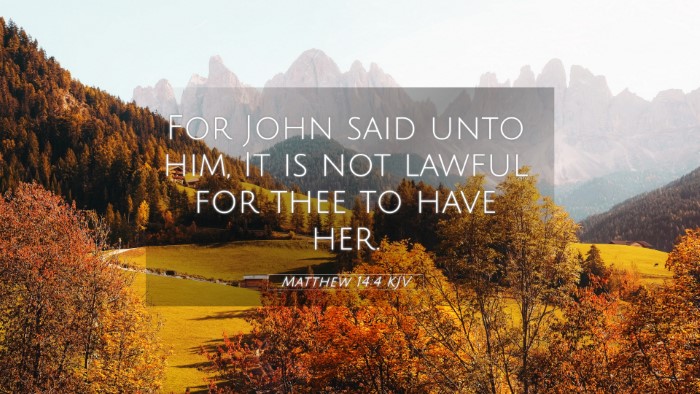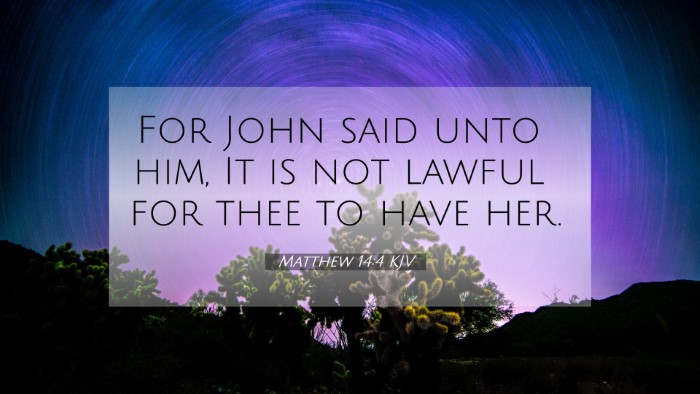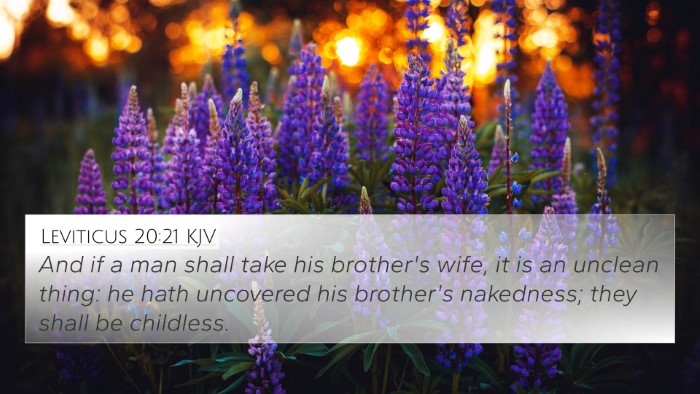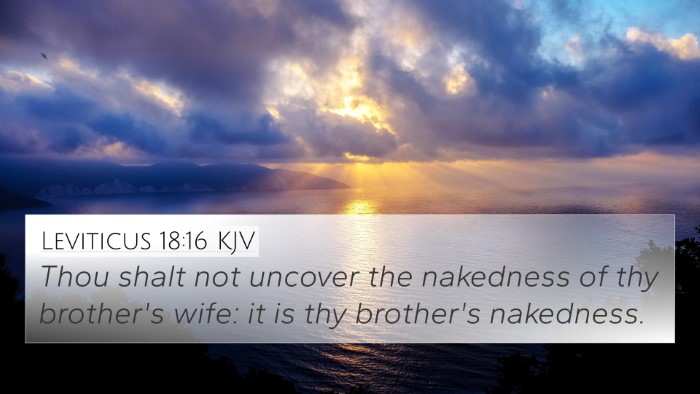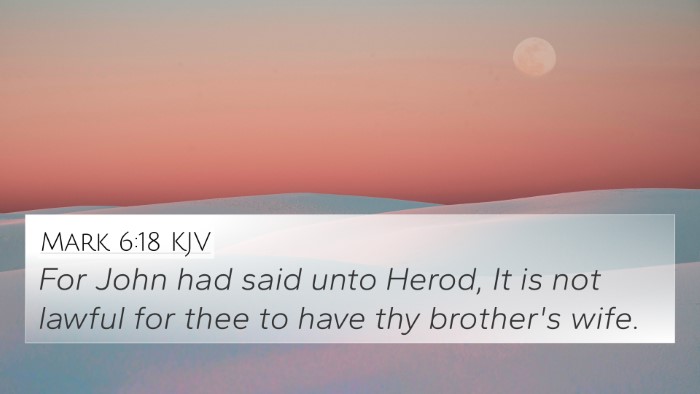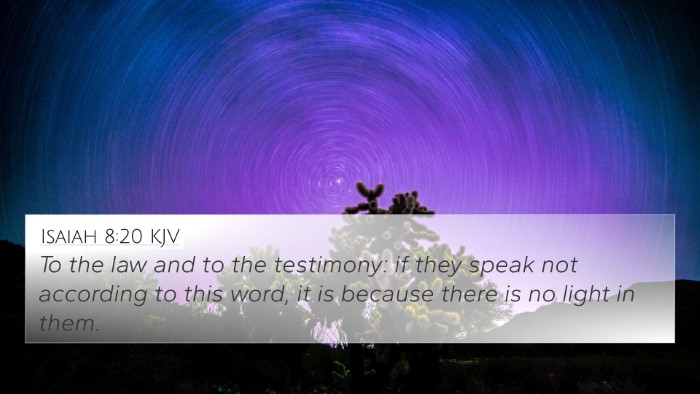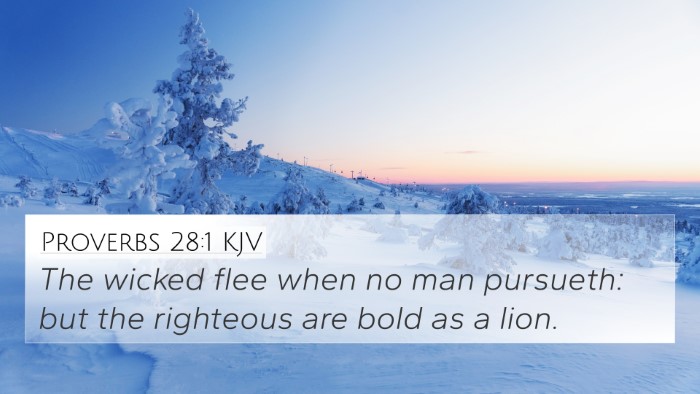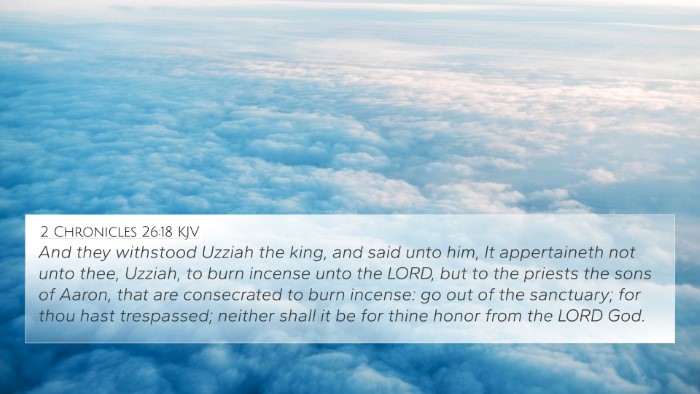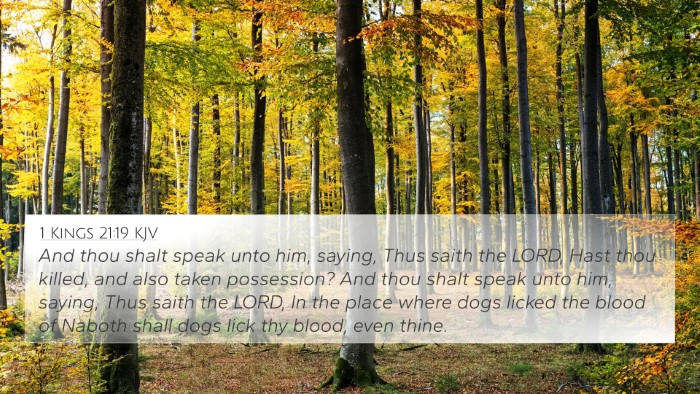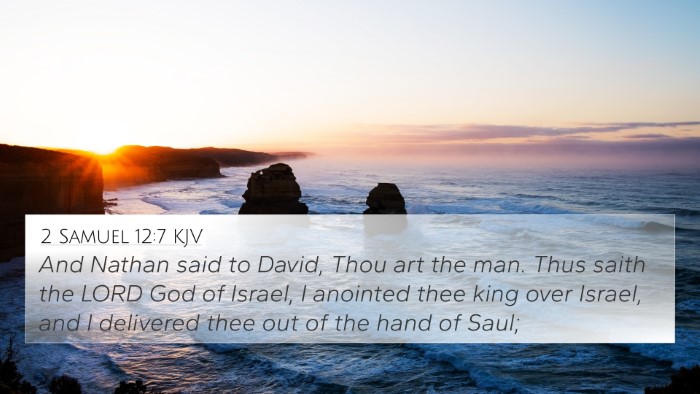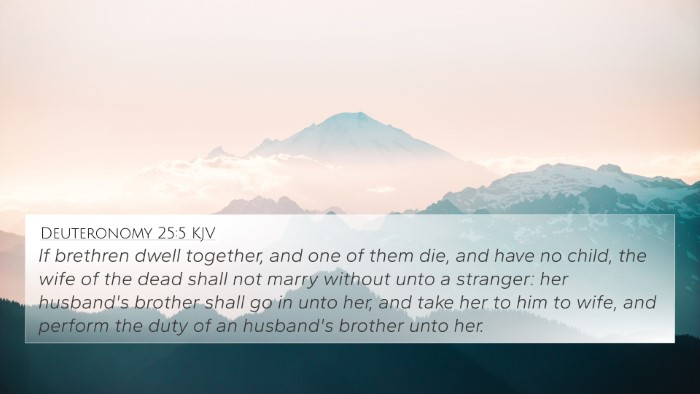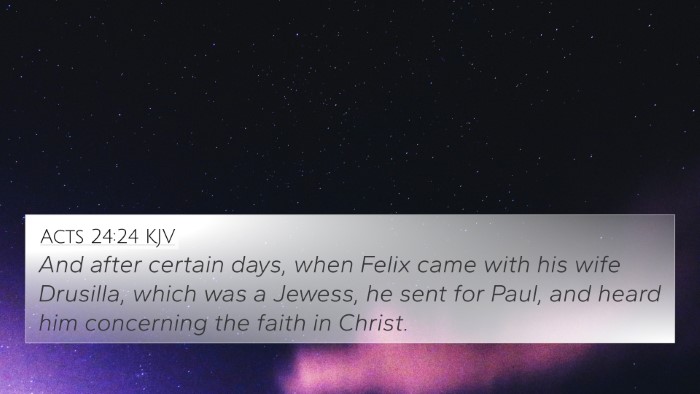Understanding Matthew 14:4
Verse: "For John said unto him, It is not lawful for thee to have her." - Matthew 14:4
This verse refers to John the Baptist’s admonition to King Herod, confronting him about his unlawful marriage to Herodias, the wife of his brother Philip. The implications of this verse stretch beyond the immediate narrative, touching themes of morality, authority, and the prophetic mission of John.
Summary of Meaning
In this verse, we find John the Baptist in a pivotal confrontation regarding righteousness and lawfulness. Here are some insights into its meaning:
- Prophetic Courage: John the Baptist embodies the role of a prophet who speaks the truth to power. His declaration against Herod's marriage exemplifies the calling of prophets throughout scripture to uphold God’s standards of morality.
- Lawfulness and Morality: The term 'lawful' signifies the importance of adhering to divine and moral law. The outrage over Herod’s actions highlights the need for adherence to God’s ordinances in life choices.
- Herod's Authority: The confrontation indicates the tension between kingly authority and divine righteousness. It prompts reflection on how spiritual leaders should respond to moral failures of those in power.
Contextual Connections
Various verses relate to Matthew 14:4, enriching our understanding of its themes:
- Leviticus 18:16: "Thou shalt not uncover the nakedness of thy brother's wife: it is thy brother's nakedness." This Old Testament law resonates with John’s admonition and serves as a backdrop for his confrontational stance.
- Mark 6:18: "For John had said unto Herod, It is not lawful for thee to have thy brother's wife." This parallel passage in Mark reinforces John’s prophetic voice and indicates that his message was consistent across narratives.
- Matthew 3:2: "And saying, Repent ye: for the kingdom of heaven is at hand." John's ministry initiates themes of repentance that serve as a precursor to the confrontation detailed in Matthew 14:4.
- Luke 3:19-20: These verses provide further insight into John’s denunciation of Herod, reflecting his consistent stand on moral issues throughout his ministry.
- 1 Timothy 4:1: "Now the Spirit speaketh expressly, that in the latter times some shall depart from the faith, giving heed to seducing spirits, and doctrines of devils." This sheds light on the continual struggle against moral decay, which John was confronting.
- Romans 13:1-2: "Let every soul be subject unto the higher powers. For there is no power but of God: the powers that be are ordained of God." It invites discussion on how Christians relate to authorities that act immorally.
- Ephesians 5:11: "And have no fellowship with the unfruitful works of darkness, but rather reprove them." This connects to the commendable work of John in rebuking sin regardless of its source, even from a king.
Thematic Connections
The verse connects with several significant biblical themes:
- Authority and Accountability: Examining how authority figures respond to spiritual truths and the role of prophetic voices in society.
- Righteousness and Justice: Upholding God's moral standards in society and the individual's responsibility to speak out against injustice.
- Prophetic Duty: The role of prophets in calling out sin, regardless of the societal cost, and the importance of prophetic courage in today's context.
Comparative Analysis
By cross-referencing these verses and themes, we find a rich interplay of moral challenges faced by biblical figures, offering guidance for contemporary believers. Understanding John the Baptist's role can shed light on how Christians are to engage with modern ethical dilemmas.
Conclusion
In summary, Matthew 14:4 serves as a reminder of the importance of speaking truth to power and adhering to God's moral law. As believers seek to understand the context and implications of this verse, it becomes an invitation to explore the weight of righteousness and the duties given to those who resolve to follow God faithfully, paralleling stories throughout the Bible that share similar moral truths.
Resources for Further Study
Those looking to deepen their understanding through cross-referencing can utilize:
- Bible Concordance: A tool that helps locate verses and their connections.
- Bible Cross-Reference Guide: A resource for finding related verses and themes.
- Cross-Reference Bible Study: Methods for engaging with scripture through thematic study.
- Bible Chain References: A system for linking related passages in a structured way.
